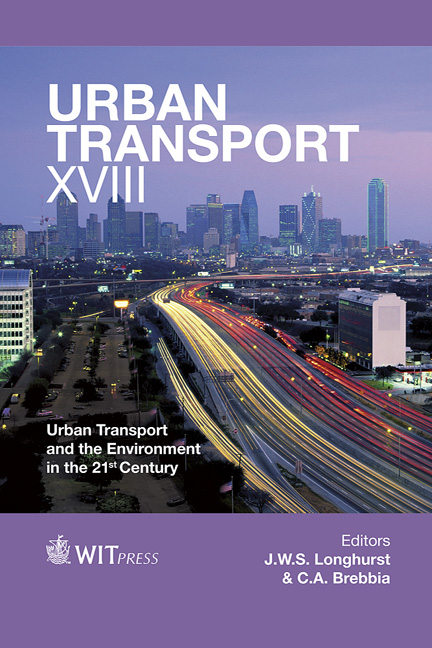Challenges For Integrating Bicycles And Public Transport In Brazilian Metropolitan Regions
Price
Free (open access)
Transaction
Volume
128
Pages
11
Page Range
229 - 239
Published
2012
Size
419 kb
Paper DOI
10.2495/UT120211
Copyright
WIT Press
Author(s)
M. S. G. Tobias, M. L. A. Maia & I. M. D. Pinto
Abstract
In recent decades, several studies and actions have been highlighted in search of \“aggregation” or consolidation of demand through modal integration, primarily driven by operational objectives and participation of non-motorized modes in relation to the number of trips produced. In this paper the possibilities for integrating bicycles and public transport in Brazilian metropolitan regions were explored, with cases under study in Belem, Recife and Salvador. The method is empirical, based on secondary data involving the urban transport network and information from the users’ perception and the integration. So the central questions of this study are: Why integrate? Who integrates? How to integrate? The space-based data are based primarily on the dimensions analysis, besides the consideration of the strategic importance of the potential points of integration. There were three kinds of surveys: household survey – Recife; users’ survey (in the stations) and cyclists on the road survey – Belem and Salvador. The focus group concerns the demand under study, with the focus of this work on cyclists using the bike for a range of activities, present in the public transport network, and whether or not they use the bus as a mode of public transport. The answers to central questions come from analysis of the dimensions above, a recursive process of analyzing results aimed at understanding the issues and the definition of the aspects of integration. In general, the central questions were answered and the method showed itself as suitable for such studies on integration in public transport. Keywords: methodology, cycling systems, integration, public transport, metropolis.
Keywords
methodology, cycling systems, integration, public transport,metropolis.





